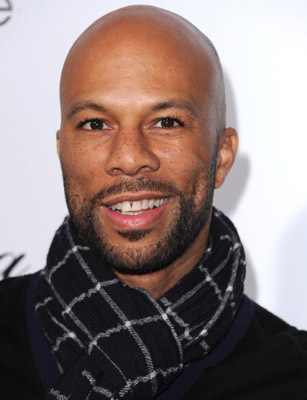Boxing as a Career: Complete Guide to Professional Fighting
The reality of boxing as a professional career
Box present one of the virtually challenging yet potentially rewarding career paths in professional sports. While the spotlight oftentimes focus on championship belts and a million dollar purses, the journey to become a professional boxer require dedication, sacrifice, and realistic expectations about the industry’s demands.
Professional boxing operate otherwise from traditional career paths. Success depend on physical ability, mental toughness, marketing savvy, and business acumen. The sport reward those who combine athletic excellence with smart career management, but it besides demand significant personal and financial investment before generate meaningful returns.
Essential requirements for professional boxing
Physical and athletic foundation
Professional boxing demands exceptional physical conditioning and natural athletic ability. Successful boxers typically begin training in their teens or early twenties, allow sufficient time to develop the technical skills and physical attributes necessary for competition.
Core requirements include cardiovascular endurance, hand eye coordination, reflexes, and the ability to absorb and deliver punishment. Boxers must maintain peak physical condition year round, as regular minor lapses in fitness can result in serious injury or career end defeats.
Technical skill development
Box technique require years of dedicated practice under qualified instruction. Professional fighters must master fundamental skills include footwork, defensive positioning, punch combinations, and ring strategy. The learn curve is steep, and most professionals train for several years before compete at higher levels.
Amateur boxing experience provide valuable foundation skills and competitive experience. Many successful professionals compete extensively as amateurs, learn to handle pressure and develop their fighting style before turn professional.
Training and development path
Find quality instruction
Professional boxing careers depend hard on quality coaching and training environments. Established boxing gyms with experienced trainers provide the technical instruction, spar partners, and competitive atmosphere necessary for development.

Source: alamy.com
Trainers play multiple roles in a boxer’s career, serve as technical instructors, strategic advisors, and career mentors. The trainer fighter relationship oftentimes determines career trajectory, make the selection of qualified, experienced coach crucial for success.
Amateur competition experience
Amateur boxing provide essential competitive experience without the financial pressures of professional fighting. Amateur competitions allow fighters to develop skills, build confidence, and establish records that attract professional opportunities.
Many successful professionals compete in golden gloves tournaments, regional championships, and national competitions as amateurs. This experience help fighters understand their abilities and provide exposure to promoters and managers scout new talent.
Financial realities of professional boxing
Entry level earnings
Begin professional boxers typically earn modest purses for early fights, much range from hundreds to low thousands of dollars per bout. These amounts seldom cover training expenses, travel costs, and other career relate investments require for advancement.
Most new professionals maintain other employment while build their boxing careers. The financial demands of training, equipment, and competition oftentimes exceed early career earnings, require external income sources or financial support.
Career progression and earning potential
Box earnings increase importantly with success and recognition. Regional champions and contenders can earn substantial purses, while world champions and pay per view headliners command millions of dollars for major fights.
Nonetheless, solely a small percentage of professional boxers reach elite earn levels. The majority compete at regional or national levels, earn moderate incomes that may or may not justify the career’s physical and financial demands.
Career management and business aspects
Professional team assembly
Successful boxing careers require professional management teams include managers, promoters, trainers, and oftentimes attorneys and accountants. These professionals handle contract negotiations, fight scheduling, marketing, and financial management.
Managers typically receive percentages of fight purses in exchange for career guidance and opportunity creation. Promoters organize events and secure television or stream coverage that increase fighter exposure and earn potential.

Source: alamy.com
Marketing and self-promotion
Modern boxing careers benefit importantly from effective self-promotion and media engagement. Social media presence, interview skills, and public persona development can enhance marketability and attract larger audiences to fights.
Fighters who develop compelling storylines, engage with fans, and demonstrate personality outside the ring oftentimes receive more lucrative opportunities than evenly skilled but less marketable competitors.
Health and safety considerations
Injury risks and long term health
Professional boxing carry inherent risks of serious injury, include concussions, brain trauma, and other physical damage. Fighters must cautiously consider these risks when pursue boxing careers, particularly give grow awareness of chronic traumatic encephalopathy and other long term health consequences.
Medical supervision, proper safety protocols, and honest assessment of accumulate damage become crucial career management factors. Many successful boxers retire strategically to preserve long term health and quality of life.
Career longevity planning
Box careers are typically shorter than traditional professions, with most fighters compete professionally for 10 15 years at most. Successful career planning include develop skills and relationships that provide post fighting opportunities in training, promotion, or other boxing relate fields.
Education and skill development outside boxing provide important backup options and career transition possibilities. Many successful fighters pursue business ventures, coach careers, or media opportunities that leverage their boxing experience and recognition.
Alternative boxing career paths
Training and coaching
Box knowledge and experience create opportunities in training and coaching, both for aspire professionals and fitness orient clients. Personal training, group fitness classes, and amateur coaching provide income streams that utilize boxing skills without competition risks.
Establish trainers oftentimes earn steady incomes work with multiple fighters or operating boxing programs. This career path allow continued involvement in the sport while build more predictable and sustainable income sources.
Promotion and event management
Box industry experience provide foundation knowledge for careers in fight promotion, event management, and sports marketing. Understand the sport from a competitor’s perspective offer valuable insights for business operations and fighter relations.
Promotional opportunities range from local event organization to major championship promotion, with earn potential varying importantly base on scale and success levels.
Make the career decision
Realistic assessment factors
Potential professional boxers must frankly evaluate their athletic ability, financial resources, family support, and alternative career options. Box demand significant sacrifices that may not be justified unless genuine potential for success exists.
Age, amateur experience, natural ability, and access to quality training all influence the likelihood of professional success. Objective evaluation from experienced trainers and industry professionals provide valuable perspective on realistic career prospects.
Timeline and commitment requirements
Professional boxing careers require full-time commitment and typically take several years to develop meaningful earn potential. Fighters must be prepared for extended periods of modest income while build skills and recognition.
The time investment includes daily training, regular competition, travel for fights, and constant physical conditioning. This lifestyle demand significant personal sacrifices and affect relationships, family planning, and other life goals.
Success strategies for box careers
Professional development approach
Successful boxing careers benefit from treat the pursuit as a business venture instead than but athletic competition. This includes careful financial planning, strategic career progression, and professional relationship building.
Set realistic short term and long term goals help maintain motivation and provide measurable progress indicators. Regular assessment and adjustment of career strategies base on results and change circumstances improve the likelihood of sustainable success.
Network building and industry relationships
Box success oftentimes depend on relationships with trainers, promoters, managers, and other industry professionals. Building and maintain these relationships require professionalism, reliability, and mutual respect.
Active participation in box communities, attend industry events, and maintain positive relationships with gym partners and competitors create opportunities for career advancement and valuable industry connections.
Box as a career offer the potential for significant rewards but demand realistic expectations, careful planning, and total commitment. Success require combine athletic excellence with business acumen, while cautiously manage the physical and financial risks inherent in professional fighting. For those with genuine ability and unwavered dedication, boxing can provide a fulfilling and potentially lucrative career path, though the majority of participants should maintain alternative career options and realistic expectations about the challenges involve.



